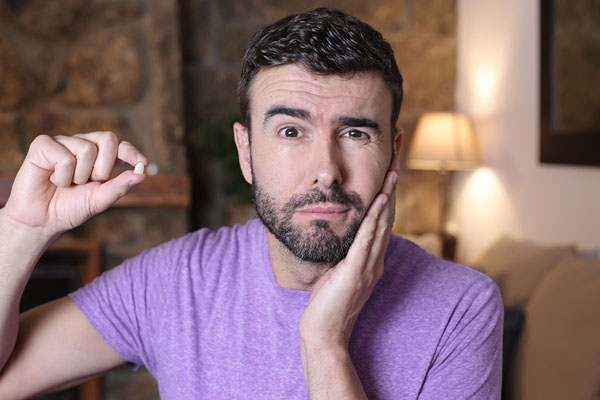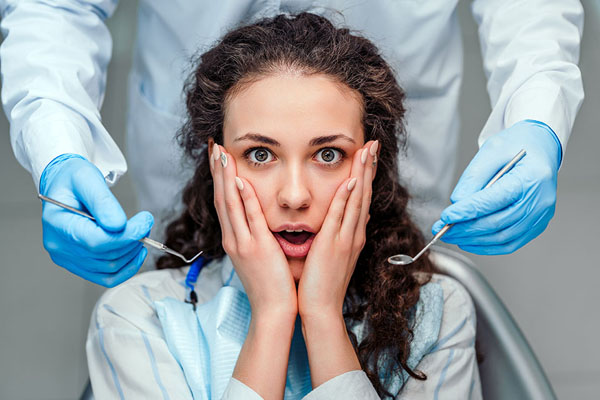Have you Lost a Tooth?
Tooth loss can be an alarming and unexpected event. It can occur from a severe blow to the face during sports activities, a car accident, or even a sudden fall. When facing a dental emergency like a knocked-out tooth, or an avulsed tooth, time is of the essence.
Seeking emergency dentistry services from Dr. Scott Grivas, the best emergency dentist in Sacramento, can increase the chances of saving the affected tooth.
Common Causes of Tooth Loss
Untreated Dental Decay
Dental cavities, commonly known as dental caries or tooth decay, are one of the primary causes of tooth loss. When left untreated, cavities can progress deeper into the tooth, reaching the pulp and causing severe infection. This infection can lead to the need for tooth extraction if root canal treatment isn’t possible.
Gum Disease (Periodontal Disease)
Gum disease is a bacterial infection that affects the gums and the supporting structures of the teeth. In its advanced stages, gum disease can cause gum recession, bone loss, and weakening of the tooth’s foundation. Eventually, the affected permanent tooth may become loose and require extraction.
Dental Trauma
Accidents, sports injuries, or falls can cause direct trauma to the mouth, leading to tooth dislodgement or avulsion (complete removal from the tooth socket itself). Immediate dental intervention is crucial to saving the tooth in such cases.
Bruxism (Teeth Grinding)
Chronic teeth grinding, or bruxism, can wear down the tooth enamel and lead to tooth sensitivity, fractures, and eventual loss.
Poor Oral Hygiene
Poor oral hygiene due to inadequate teeth brushing, flossing, and regular dental check-ups can contribute to the accumulation of plaque and tartar, promoting tooth decay and gum disease.
Age and Genetics
With aging, the risk of tooth loss increases. Wear and tear over the years can affect the structural integrity of teeth. Some individuals may be more predisposed to certain dental conditions that can lead to tooth loss due to genetic factors.
Immediate Actions When Facing Tooth Loss
When faced with a dental emergency involving permanent tooth loss, it’s crucial to act quickly and follow these immediate steps:
- Stay Calm: Although the situation can be distressing, try to stay calm and collected to make rational decisions.
- Locate the Tooth: If the tooth has been knocked out, try to locate it immediately and handle it by the crown, avoiding touching the root.
- Gently Rinse: If the tooth is dirty, rinse it gently with milk or saline solution. Avoid using tap water.
- Repositioning the Tooth: If possible, put the tooth back into its socket gently. Hold it in place with a clean cloth or gauze.
- Preserve the Tooth: If repositioning isn’t feasible, keep the tooth moist by placing it in milk or a clean container with saliva.
- Contact Emergency Dentist: Call your dentist and explain the situation clearly for immediate assistance. They’ll schedule an emergency visit as soon as possible.
Emergency Treatment for Tooth Loss
Emergency dentistry offers various treatment options based on the severity of tooth loss and the condition of the affected tooth. Some treatment options include:
- Tooth Reimplantation: If the adult tooth is intact and preserved well, a dentist may attempt re-implantation back into its socket.
- Dental Bridge: For cases where re-implantation isn’t possible, a dental bridge can be used to fill the gap created by the missing tooth.
- Dental Implants: Dental implants are a long-term solution where an artificial tooth root is placed in the jawbone, providing a stable base for a replacement tooth.
- Partial Dentures: Partial dentures are removable appliances that replace one or more missing adult teeth.
- Immediate Dentures: In some cases, immediate dentures may be provided temporarily while a long-term solution is planned.
Recovery and Aftercare
After undergoing emergency dentistry for adult tooth loss, proper recovery and aftercare are essential for optimal results. Follow these guidelines for a smooth recovery:
- Oral Hygiene: Maintain good oral hygiene practices, including regular brushing, flossing, and antibacterial mouthwash.
- Dietary Considerations: Opt for a soft diet initially to avoid putting excessive pressure on the treated area.
- Avoiding Chewing on the Affected Side: Refrain from chewing on the side where the tooth loss occurred to prevent strain on the healing area.
- Attend Follow-Up Appointments: Attend all follow-up appointments with the dentist to monitor the progress of your treatment and address any concerns.
- Quit Smoking: If you smoke, consider quitting, as smoking can delay the healing process and increase the risk of complications.
Frequently Asked Questions
Should I go to the ER for a knocked-out tooth?
Yes, if you have a knocked-out or broken tooth, seek immediate dental care, and visit the emergency room (ER) if your dentist is unavailable. Dental emergencies require prompt attention to increase the chances of saving the tooth or receiving appropriate treatment. The ER staff can provide initial care and help stabilize the situation until you can see a dentist for further evaluation and treatment.
Can a knocked-out tooth be saved if I act quickly?
Acting quickly can significantly increase the chances of saving a knocked-out tooth. If the tooth is handled properly and re-implanted, the chances of successful reattachment are higher. If a tooth is knocked loose, follow these immediate steps:
- Locate the tooth
- Handle the tooth by the crown
- Gently rinse the tooth with milk or a saline solution if dirty
- Try to place the tooth carefully back into its socket gently
- Keep the tooth moist by placing it in milk or a clean container with saliva
- Seek immediate dental care from an emergency dentist to see if they can re-implant it
Taking Swift Action in Dental Emergencies
Experiencing knocked-out or missing teeth can be a daunting and challenging situation, but with prompt action and proper dental care, the impact can be minimized. Remember, seeking emergency dentistry immediately after dental trauma is essential for successful treatment and recovery.
At A. Scott Grivas III, DDS, INC., Dr. Scott Grivas can help patients achieve the best results after tooth loss. Contact our Sacramento dental practice at (916) 929-9222 to learn more and schedule an appointment.



